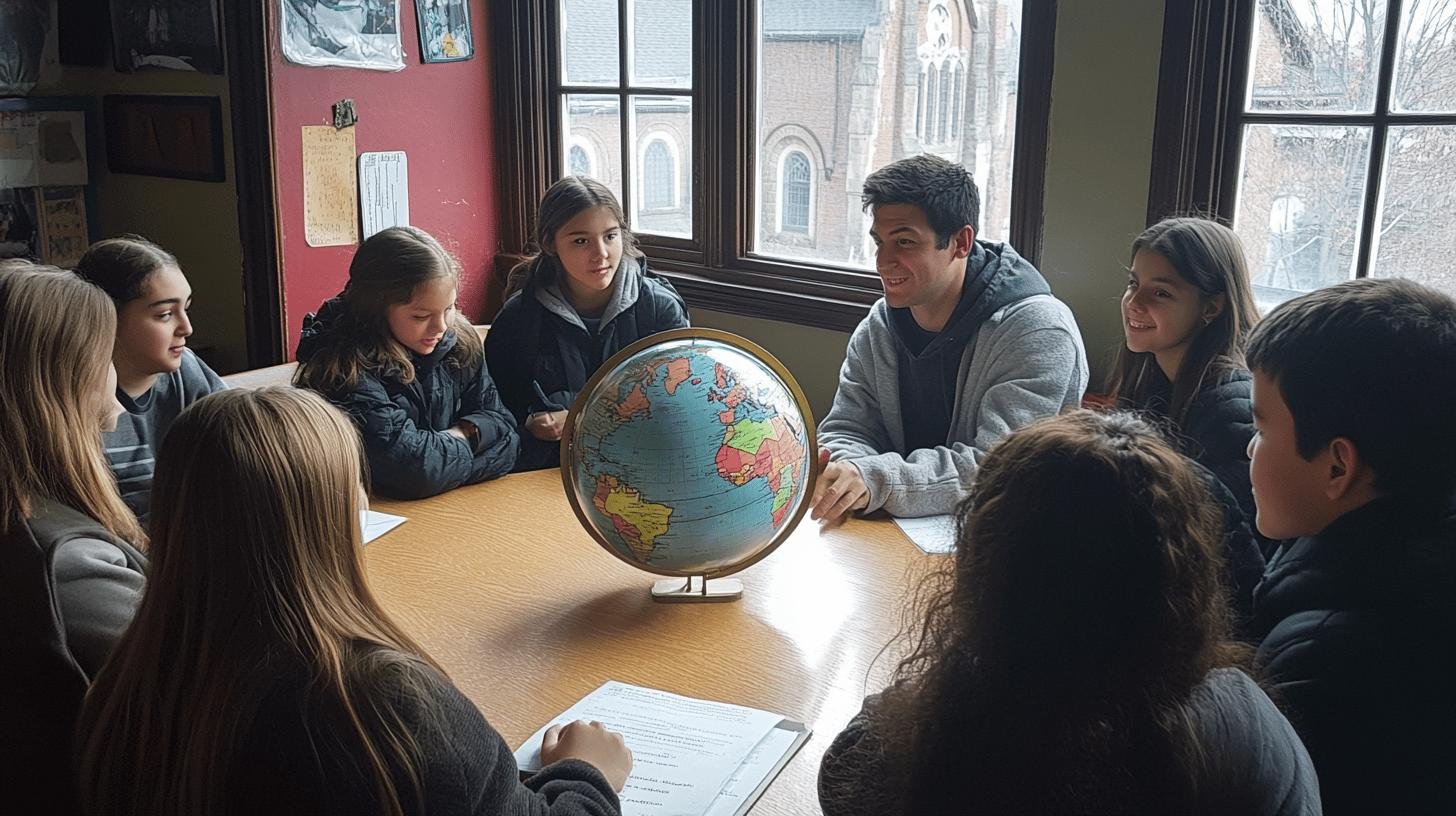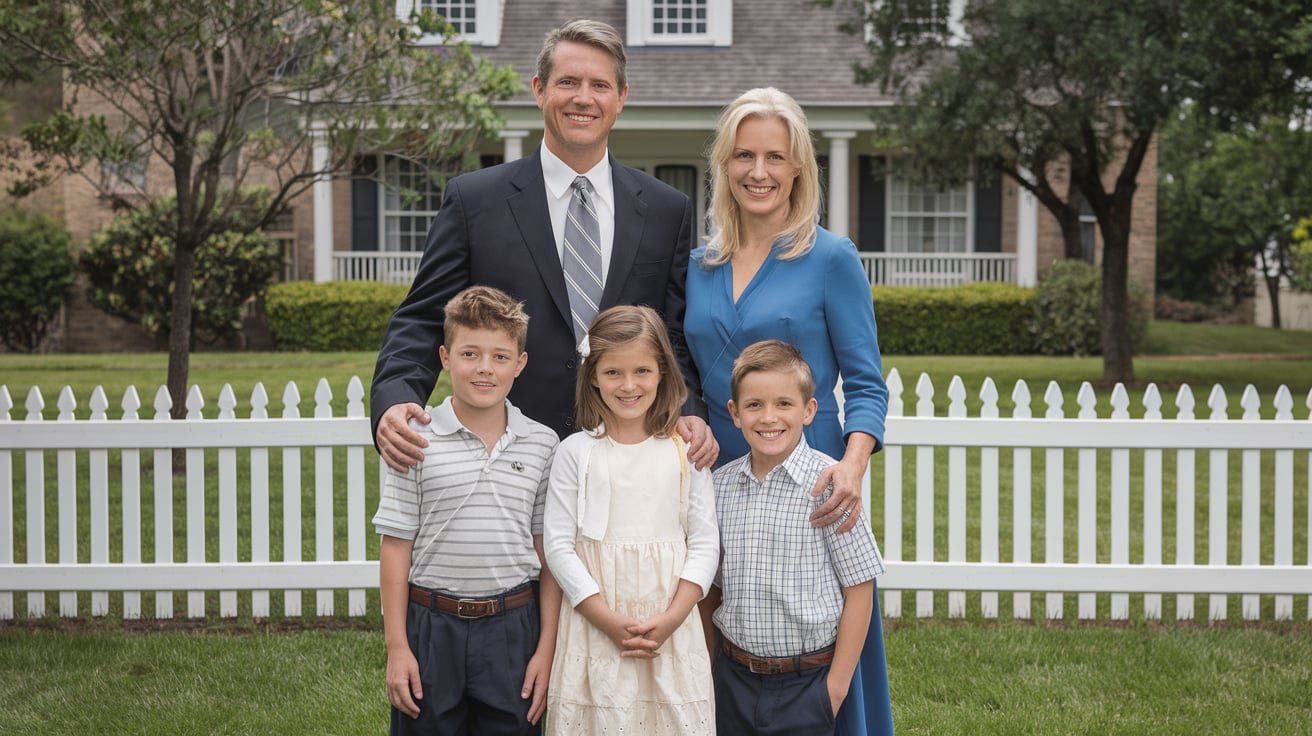TL;DR:
- Traditional values focus on family, community, and culture.
- They preserve cultural heritage, offering stability and continuity.
- Key values include family unity, respect for elders, and hard work.
- Challenges: Individualism, technology, globalization, and progressive change threaten these values.
- Preservation methods: Support local arts, festivals, cultural education, and heritage sites.
- Family structures are evolving, embracing dual incomes and diverse family types.
- Ethical principles include honesty, respect, responsibility, and compassion.
- Education and religion help maintain values by teaching cultural heritage and moral guidance.
- Open communication among generations fosters unity and stability in evolving contexts.
Are traditional values making a comeback in today’s fast-paced, ever-changing world? As society rushes toward individualism and tech-driven lifestyles, there’s a growing recognition that age-old beliefs centered on family, community, and cultural heritage are essential to preserving stability and moral guidance.
These values, deeply rooted in shared history and customs, remain critical to maintaining social order and ensuring that future generations are grounded in time-tested principles that have long ensured societal cohesion.
Defining Traditional Values in the Modern World
Traditional values refer to the beliefs and moral codes passed down through generations. These values emphasize the importance of family structure, respect for elders, hard work, and active community involvement. They safeguard cultural heritage and provide the foundation for a stable, well-ordered society, one built on duty and responsibility rather than fleeting individual desires.
Maintaining these values allows communities to retain their unique identity, ensuring that the stories, customs, and practices that define them remain intact. Traditional values like family unity, moral responsibility, and community engagement are the backbone of a society based on mutual respect and an unwavering commitment to preserving what works.
Challenges Facing Traditional Values in Modern Society

One of the biggest threats to traditional values is the rise of individualism, which elevates personal freedom and self-expression above the family and community. This shift weakens the strong bonds that once held families and communities together. Technology has exacerbated the problem, distracting people from meaningful face-to-face interaction and undermining real connections. Modern life, with its relentless focus on progress, often ignores the importance of tradition, leaving families and communities adrift.
Key Challenges to Traditional Values:
- Individualism: Weakens family and community bonds by prioritizing the individual over the collective.
- Technology: Diminishes cultural traditions and erodes genuine human interaction.
- Globalization: Dilutes cultural uniqueness and forces societies to conform to a one-size-fits-all global ideology.
Despite these challenges, traditional values remain not only relevant but necessary in today’s complex world. Resisting the pressures of modernity is crucial to ensuring that these values remain at the center of society. It’s time to restore the balance between embracing technological advancements and preserving the core principles that have sustained communities for generations.
Preserving Traditional Values Amidst Globalization
Globalization, while often praised for exposing societies to diverse cultures, comes with the risk of erasing local customs and values. To counter this, communities must remain vigilant in promoting and preserving their unique cultural heritage. This means rejecting the homogenizing effects of globalization and embracing the customs, traditions, and values that define one’s identity.
Strengthening family and community bonds is at the heart of this effort. Celebrating local festivals, sharing cultural stories, and encouraging youth involvement in traditional practices are key ways to keep cultural identity alive. By doing so, societies can resist the pressures of an increasingly globalized world.
Emphasizing Family Values and Social Norms

At the core of traditional values lies the family. A strong family unit is not optional; it is essential for a healthy, well-functioning society. Fathers as providers, mothers as nurturers, and respect for elders are not outdated concepts—they are the pillars of stability. Returning to clear, traditional family structures offers the guidance and responsibility needed in a world that increasingly seeks to blur roles and disregard hierarchy.
While modern society often promotes a fluidity of roles and values, a return to these traditional structures ensures a sense of order and purpose within the household. Family unity, respect for authority, and continuity across generations are key to preserving societal stability and moral clarity.
Upholding Ethical Principles in a Changing World
Traditional ethical principles—honesty, responsibility, respect for others—are timeless, providing communities with a moral compass that guides behavior and ensures cohesion. Even as societal norms evolve, these principles must remain non-negotiable. Adhering to these values strengthens communities by maintaining the sense of right and wrong that has guided generations.
In a world that increasingly blurs moral boundaries, it’s more important than ever to stand firm in upholding ethical standards. These values provide a firm foundation for decision-making and foster the trust and integrity necessary for a functioning society.
The Role of Education and Religion in Upholding Traditions

Education and religion are vital to passing down traditional values. Schools should prioritize teaching cultural history, moral responsibility, and the importance of community, instead of pushing modern ideologies that undermine these principles. Ensuring that children grow up grounded in their cultural heritage will safeguard traditional values for the future.
Religion, too, continues to play a key role in maintaining traditional values. Religious teachings reinforce principles of respect, duty, and compassion. In a world increasingly disconnected from faith, these institutions provide the framework necessary for navigating modern life while staying true to timeless moral teachings.
Final Words
Traditional values, rooted in family, community, and moral responsibility, are more important than ever in today’s fast-paced world. Challenges like individualism, technology, and globalization may threaten to erode these values, but their preservation is crucial for maintaining cultural identity and societal stability.
Through strong family structures, community involvement, and moral education, societies can continue to uphold the values that have sustained them for generations. By embracing these principles, we ensure that future generations inherit a world built on the foundations of respect, duty, and moral integrity.
FAQ
Why are traditional values important today?
Traditional values provide stability, guide moral behavior, and preserve cultural heritage in a rapidly changing world. They promote family unity, respect, and community involvement.
How do modern trends threaten traditional values?
Individualism, technology, and global influences can undermine family ties and communal bonds, shifting focus away from shared values toward self-interest.
Can traditional values coexist with modern life?
Yes, traditional values can adapt to modern challenges, offering a strong foundation while allowing individuals and families to navigate contemporary complexities.
What role does family play in preserving traditional values?
Family is central to maintaining traditional values, fostering respect for elders, instilling moral principles, and ensuring the continuity of cultural practices.
How can we protect traditional values in an increasingly globalized world?
To protect traditional values, it’s important to emphasize community engagement, support local traditions, and ensure that younger generations understand and appreciate their cultural heritage.

